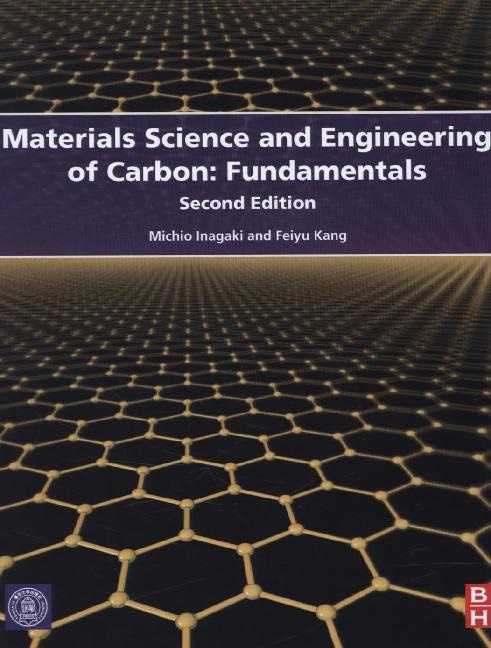Read more
Informationen zum Autor Michio Inagaki, Ph.D. is a famous carbon material scientist, who obtained his PhD degree from Nagoya University in 1963. He has worked on carbon materials for more than 50 years. In 2011, he won the Peter A. Thrower Award for Exceptional Contribution to the International Carbon Community. Feiyu Kang received his PhD from The Hong Kong University of Science and Technology in 1997. He is honorary editorial advisory board of international journal CARBON, Joint Chairmen of international symposiums: CARBON2002 (Beijing), Carbon2011 (Shanghai) and 15th International Symposium on Intercalation Compounds (ISIC15), Coordinators of international research projects: Professor M. Inagaki (NSFC-JSPS) and Professor I. Mochida (JST-MOST). Prof. Kang has investigated graphite and carbon materials since 1988. His research interest includes nano-carbon materials, graphite producing process, porous carbon and nuclear graphite. Prof. Kang had published more than 200 scientific papers and 3 books. Klappentext Materials Science and Engineering of Carbon: Fundamentals provides a comprehensive introduction to carbon, the fourth most abundant element in the universe. The contents are organized into two main parts. Following a brief introduction on the history of carbon materials, Part 1 focuses on the fundamental science on the preparation and characterization of various carbon materials, and Part 2 concentrates on their engineering and applications, including hot areas like energy storage and environmental remediation. The book also includes up-to-date advanced information on such newer carbon-based materials as carbon nanotubes and nanofibers, fullerenes and graphenes. Inhaltsverzeichnis Part 1. Introduction Part 2. Fundamental Science of Carbon M 1. Carbon Families2. Structure and Texture of Carbon Materials3. Carbonization4. Novel Techniques for Carbonization5. Graphitization6. Acceleration of Graphitization7. Pore Development in Carbon Materials8. Introduction of Foreign Species Part 3. Engineering and Applications of Carbon Materials 9. Polycrystalline Graphite Blocks10. Highly-Oriented Graphite11. Non-graphitizing and Glass-like Carbons12. Nanocarbons13. Fibrous Carbons14. Porous Carbons15. Carbon-based Composites16. Intercalation Compounds17. Carbon Materials for Energy Storage18. Carbon Materials for Environment Remediation ...
List of contents
Part 1. Introduction
Part 2. Fundamental Science of Carbon M
1. Carbon Families2. Structure and Texture of Carbon Materials3. Carbonization4. Novel Techniques for Carbonization5. Graphitization6. Acceleration of Graphitization7. Pore Development in Carbon Materials8. Introduction of Foreign Species
Part 3. Engineering and Applications of Carbon Materials9. Polycrystalline Graphite Blocks10. Highly-Oriented Graphite11. Non-graphitizing and Glass-like Carbons12. Nanocarbons13. Fibrous Carbons14. Porous Carbons15. Carbon-based Composites16. Intercalation Compounds17. Carbon Materials for Energy Storage18. Carbon Materials for Environment Remediation

